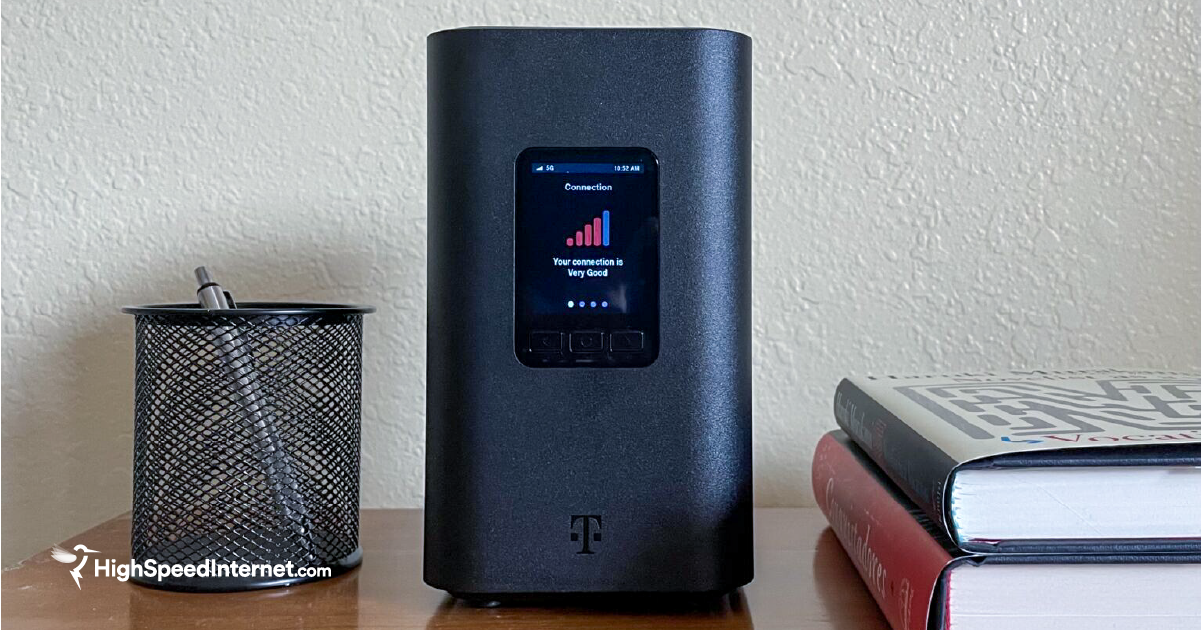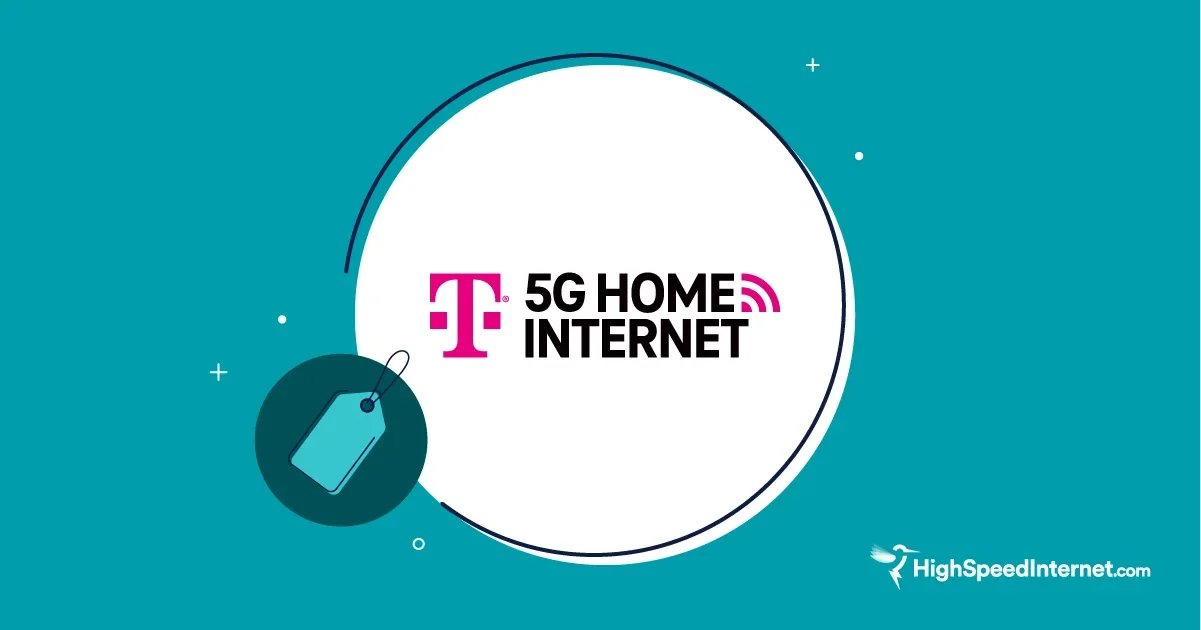Best Internet for Hulu
Get the most out of your connection while streaming your favorite series
Jul 2, 2025 | Share
Brand Guides
For a positive viewing experience, streaming video needs fast internet. Fortunately, Hulu is one of the more forgiving services, recommending at least 16Mbps speeds to take advantage of everything the service has to offer.
Of course, there’s more to an internet connection than just download speed, but that’s a good place to start if you’re looking for the best internet connection for watching shows on Hulu.
Is your internet connection fast enough for Hulu?
Take our speed test to see if your connection is fast enough to get the most out of your viewing experience.
Download speed
000 Mbps
Upload speed
000 Mbps
Latency (ping)
00 ms
Jitter
00 ms
What download speed do I need to watch Hulu?
Hulu was one of the first big streaming platforms and is accessible through either its website or through its apps, which are available (and often pre-installed) on many smart TVs and other devices.
| Video Type | Recommended sustained speed |
|---|---|
| Hulu streaming library | 3Mbps |
| Live TV streams | 8Mbps |
| 4K content | 16Mbps |
All Hulu’s minimum recommended speeds are below the FCC’s threshold for broadband internet, which is currently 25Mbps. So anyone with a broadband connection should have more than enough speed to watch anything on the platform.
It’s worth noting that most streaming services recommend 25Mbps as the bare minimum speed for 4K content, so Hulu is a notable outlier. Although it is encouraging that Hulu is confident enough in its service to claim its subscribers can have a good 4K viewing experience at these lower speeds, we suggest giving yourself some wiggle room with a speed of at least 25Mbps.
This brings us to another important point that these recommendations are for a single device. If you stream on multiple devices simultaneously, you need enough total speed on your connection for each device. So if you’re on the couch watching Letterkenny in 4K while two other people are watching live shows in other rooms, you need a connection with download speeds of at least 32Mbps to watch without interruption.
Get low-latency fiber or cable for live content
One aspect of internet speed that people often don’t consider is latency, or the delay between your device and the remote server that causes lag. Latency has the biggest impact on anything happening in real time, such as online games or video chat. Latency can also be an issue when watching live TV, causing the stream to pause, skip, or buffer while you try to watch.
Fiber and cable connections usually offer the lowest latency for fans of live television. They’re also some of the most stable connections, which means you don’t have to worry about your bandwidth going up and down, potentially dropping below minimum requirements for smooth video playback.
How Much Internet Speed Do You Need?
Est. Time: 60 seconds
Answer 6 questions and get a personalized internet speed recommendation!
How many people in your household use the internet/WiFi on a daily basis?
How many devices in your home connect to the internet, including tablets, gaming consoles, and smart devices?
How many people in your household work from home?
What video quality do you use for streaming TV and movies?
How intensely does your household participate in online gaming?
Does your household download large files from the cloud or via the internet?
Best internet plans for Hulu
| Plan | Price | Speed | Type | Order online |
|---|---|---|---|---|
| Google Fiber Core 1 Gig | $70.00/mo.* | 1,000Mbps | Fiber | View Plans |
| Xfinity 300 Mbps | $40/mo.† for 12 mos. | 300Mbps | Cable | View Plans |
| AT&T Internet 300 | $55.00/mo.‡ | 300Mbps | Fiber | |
| Spectrum Internet Premier w/ Spectrum Advanced | $60/mo.§ for 12 mos. | 500Mbps (wireless speeds may vary) | Cable, fiber | View Plans |
Data as of 3/21/2025. Offers and availability may vary by location and are subject to change.
* Plus taxes and fees. Upload/download speed and device streaming claims are based on maximum wired speeds. Actual Internet speeds are not guaranteed and may vary based on factors such as hardware and software limitations, latency, packet loss, etc.
† Pricing and plan names may vary by region. For 12 month, no term contract. Taxes and equipment not included. Incl. up to $10/mo. auto-pay & paperless bill discount.
‡ For 12 months, no term contract. Restrictions apply. Autopay w/ stored bank account and paperless billing req’d. Taxes and fees extra and subj. to change. Reduced speeds after 30 GB of usage/line. Data thresholds may vary.
§ Limited time offer; subject to change; new residential customers only (no Spectrum services within past 30 days) and in good standing with Spectrum. Taxes and fees extra in select states. SPECTRUM INTERNET: Standard rates apply after promo period. Additional charge for installation. Speeds based on wired connection. Actual speeds (including wireless) vary and are not guaranteed. Gig capable modem required for Gig speed. For a list of Gig capable modems, visit spectrum.net/modem. Services subject to all applicable service terms and conditions, subject to change. Not available in all areas. Restrictions apply.
A reliable, low-cost fiber connection is the best choice if you have that option in your area. Google Fiber is an excellent pick, though if the most intensive activity you do is watching Hulu, you can easily get by on an even cheaper fiber plan from a different provider like AT&T—or a cable plan like those from Xfinity or Spectrum.
With relatively low requirements, Hulu gives viewers a lot of flexibility to shop around for the best deals on home internet connections. While costs most likely are your main concern, you also want to avoid data caps, which video content can eat up quickly.
Shop around to find the best deals on high-speed internet in your area. Enter your zip code below to compare the best options available in your neighborhood.
Hulu viewers should avoid data caps
Data caps are unpopular in general, but they specifically pose problems if you use streaming services like Netflix and Hulu. Video uses more data than almost any other online activity, especially when watching in higher resolutions like 4K. It’s easy to lose track of how much data you have and run up huge overage charges when you’re burning through several megabytes every second.
The best way to avoid racking up additional charges on your monthly bill is to choose an internet plan that offers unlimited data. These unlimited plans are most common in wired connections like cable and fiber, though some wireless plans also offer unlimited data. In general, however, wireless plans usually have much lower data caps, so make sure you read the fine print before you sign up to a plan that doesn’t meet your needs.
If you don’t have any unlimited data plans available in your area, look for the plans with the highest data caps. Plans with over 1,000GB of data per month are usually workable, though you’d be surprised how fast you can burn through a terabyte of data with a couple of kids watching Bluey on repeat on their iPads.
Download Hulu shows to save on data
One way to get around data caps is to download shows onto your device rather than streaming them. Downloading uses roughly the same amount of data as streaming, but you only have to download a show once, after which you can watch it as much as you want without using any additional data. Streaming a show essentially downloads it again each time you turn it on, so this can be a good strategy for saving data if you have shows that you go back and watch over and over again.
You can also download shows while you’re out and about in an area with public Wi-Fi, which means you don’t have to use your data at all. Public Wi-Fi isn’t usually the fastest connection, so this works best if you’re going to be somewhere for a while, like working from a coffee shop or waiting at an airport. If you’re downloading to a phone, it’s also a good idea to double-check that you’re connected to Wi-Fi and not on your normal cellular connection, or you’ll just end up burning through your phone data, which defeats the whole purpose.
Unfortunately, downloading Hulu content is now restricted to Hulu’s No Ads plans, so those on the cheaper ad-supported plans don’t have this option. Of course, if you’re on an internet plan with restrictive data caps, it might be cheaper to upgrade your Hulu subscription, rather than paying for additional data every month.
How to watch Hulu in rural areas
Streaming video can be particularly challenging in remote areas. Rural internet providers often have low speeds and restrictive data caps—both of which are terrible for streaming services like Hulu.
If you’re looking for a rural internet plan that can handle Hulu and similar services, you probably want to look at wired plans like DSL first. Although not as fast as fiber or cable, DSL offers reliable connections, and most DSL providers offer speeds fast enough to meet Hulu’s minimum requirements.
If DSL isn’t an option in your area, 4G and 5G home internet plans are usually the next best option. Speeds are a bit more variable for these plans, but most providers offer speeds above 25Mbps, which should be plenty. But watch out for data caps, which quickly evaporate with any regular TV watching.
Satellite internet is the least desirable choice for watching video, but you can make it work if you have to. Starlink is by far the best choice, as its data plans are the least restrictive compared to the competition. HughesNet also offers “Bonus Zone” data in the middle of the night that doesn’t count against your normal data caps. If you have a Hulu subscription that allows you to download videos, downloading shows after 2 a.m. to watch the next day saves on data, though it doesn’t do much for your sleep schedule.
The bottom line: Hulu gives you a lot of flexibility in your internet plan
Hulu has reasonable bandwidth requirements compared to other streaming services, so you don’t need to shell out for the most cutting-edge internet plan just to watch your favorite shows. Data is still a big issue, so internet plans without data caps definitely win over limited ones. Otherwise, you don’t have much to worry about from Hulu, so you’re free to choose a plan that fits your budget and the other needs of your household.
Author - Peter Christiansen
Peter Christiansen writes about telecom policy, communications infrastructure, satellite internet, and rural connectivity for HighSpeedInternet.com. Peter holds a PhD in communication from the University of Utah and has been working in tech for over 15 years as a computer programmer, game developer, filmmaker, and writer. His writing has been praised by outlets like Wired, Digital Humanities Now, and the New Statesman.



